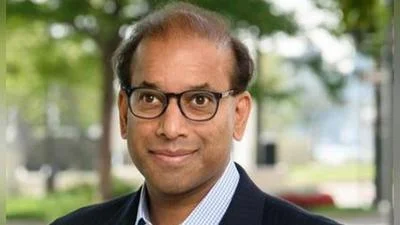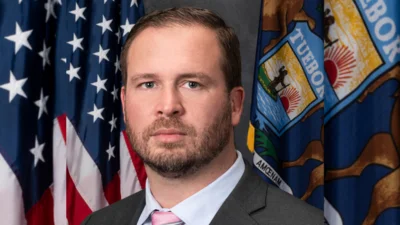Sandy K. Baruah President and Chief Executive Officer at Detroit Regional Chamber | Twitter Website
Sandy K. Baruah President and Chief Executive Officer at Detroit Regional Chamber | Twitter Website
In a discussion organized by the Detroit Regional Chamber and led by Political Affairs Vice President Brad Williams, experts explored how small businesses can effectively engage with governmental policy. The panel included prominent figures such as Carolyn Cassin of Michigan Women Forward and Mike McCready, Bloomfield Township's Supervisor. They shared advice on navigating the intricate relationship between small businesses and policymaking.
Carolyn Cassin stressed understanding governmental complexities as essential for influence. "If you want to change anything, or if you want somebody to pay attention to you, you have to understand all those [political] complexities," she stated. Cassin recommended small businesses start small with financial contributions and focus on building relationships, even with differing viewpoints. "Sometimes you need to listen to people who disagree with you because they have a viewpoint that you need to understand," she explained.
McCready highlighted the importance of an open-minded approach despite partisan differences, saying, "You may not always agree with your colleagues, but that’s part of working in a bipartisan environment."
David Knezek, Wayne County Commissioner, added that bipartisan cooperation was critical during his career, especially as part of the minority party. "When you’re in the minority, you have to reach across the aisle and build those relationships," he noted.
Knezek also addressed the correlation between campaign contributions and policymaker influence, explaining that smaller, more personal donations often meant more in his experience. "It’s really about access, not outcomes," he remarked.
Cassin emphasized developing personal relationships with legislators to facilitate meaningful discourse. "Good people run for office, and you can talk to them," she said. McCready confirmed this, emphasizing ethical treatment of all donors regardless of contribution size. "You have to treat everybody the same, whether they contribute $5 or $500," he said.
Building relationships, maintaining informed positions, and actively engaging with elected officials are underscored as critical strategies for small businesses looking to impact policy.
Small business owners are encouraged to build meaningful relationships with their local legislative leaders. Accepting campaign contributions or donations is not a guarantee of voting outcomes. Advocating from a place of shared goals rather than differences provides a mutually beneficial outcome.






 Alerts Sign-up
Alerts Sign-up